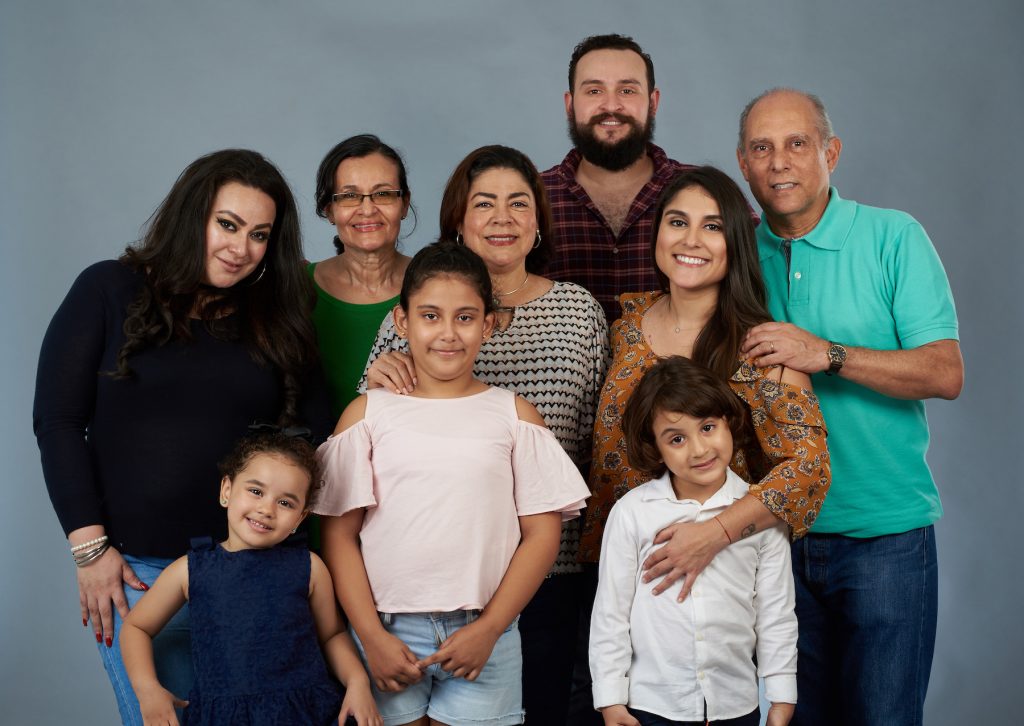Family Medical histories in Spanish are an important aspect of gaining a patient’s complete medical history. In this free Medical Spanish lesson you will learn:
- Vocabulary for family members in Spanish
- Additional vocabulary for hereditary illnesses in Spanish
- Common questions regarding family history in Spanish
Here is the Medical Spanish lesson on How to Take a Family Medical History in Spanish I taught to the Facebook group:
Subscribe to our YouTube Channel to see all of our lessons and get the latest videos right away!
Phrases and Initial Conversation / Frases y Conversación inicial
First to all, you never want to jump straight to the point with your patients, instead, you want to have an extra minute just for some brief chitchat with them.
If you don’t know what you would like to talk about, here are a handful of questions you can use to open any conversation with your patient:
Family Vocabulary / Vocabulario de Familia
There are a couple of categories of “familia” and it is important to remember this because hereditary illnesses only follow bloodlines but families are composed of several members you need to name properly:
Nuclear family / Familia Nuclear:
- Madre (mamá) / Mother (mom)
- Padre (papá) / Father (Dad)
- Hijo(a) / Son – Daughter
- Hermano(a) / Brother – Sister
Relatives / Parientes:
- Abuelo(a) / Grandfather – Grandmother
- Nieto(a) / Grandson – Granddaughter
- Tío(a) / Uncle – Aunt
- Primo(a) / Cousin
- Sobrino(a) / Nephew – Niece
- Tío(a) abuelo(a) / Great Uncle – Great Aunt
- Bisabuelo(a)
/ Great-grandfather – Great-grandmother
- Bisnieto(a) / Great grandson – Great granddaugther
Combined Families / Familias Combinadas:
In English we use the prefix “step”, but in Spanish you need to use the suffix “astra” or “astro” for the following family members:
- Madrastra / Stepmother
- Padrastro / Stepfather
- Hijastro(a) / Stepchild
- Hermanastro(a)
/ Stepbrother -Stepsister
Hereditary Diseases / Enfermedades Hereditarias
There is a lot of hereditary diseases but here are the most most common ones:
Heart Diseases / Enfermedades de corazón:
| Spanish | English |
| Arritmia | Arrhythmia |
| Ataque de corazón | Heart attack |
| Colesterol alto | High cholesterol |
| Miopatía | Myopathy |
| Presión alta / Hipertensión | High pressure / Hypertension |
| Insuficiencia cardíaca | Heart failure |
Note: Any kind of organ failure in English, is “insuficiencia” in Spanish.
Blood diseases / Enfermedades de sangre:
Mental illnesses / Enfermedades mentales:
| Spanish | English |
| Adicciones | Addictions |
| Ansiedad | Anxiety |
| Depresión | Depression |
| Trastorno de ánimo | Mood disorder |
Note: “Trastorno” is the proper word to use in Spanish when you want to talk about a disorder, particularly in the mental health realm.
Other illnesses / Otras enfermedades
Here are extra vocabulary for other types of hereditary diseases in Spanish 🙂
| Spanish | English |
| Alergias | Allergies |
| Artritis | Arthritis |
| Asma | Asthma |
| Cáncer | Cancer |
| Diabetes | Diabetes |
| Fibrosis quística | Cystic fibrosis |
| Obesidad | Obesity |
| Síndrome de Down | Down’s Syndrome |
If you need a specific vocabulary for any other type of illnesses, please visit this post.
Questions About Medicines / Unas preguntas sobre medicamentos
Sometimes it’s easier to discover hereditary illnesses through talking about any medications that family members are taking. If you think this approach would be useful to you, use any of these questions:
Family History / Historia Familiar
After these general questions, the next step is getting more specific information about the family history in Spanish:
Does anyone in your family have (or has anyone had….?):
¿Alguien en su familia padece de …? o ¿Alguien en su familia ha padecido de…?
The verb “padecer” (to have an illness chronically) can be changed for “sufrir” (to suffer) so you can say
- “¿Alguien en su familia sufre de o ha sufrido de?”
Another option, the most simple one: using the verb “tener” (to have):
- “¿Alguien en su familia tiene o ha tenido…?”.
- Alcoholismo / Alcoholism
- Abuso de drogas
/ Drugs abuse
- Cáncer / Cancer
- Colesterol alto / High cholesterol
- Derrame cerebral / Stroke
- Enfermedades cardíacas / Heart diseases
- Enfermedad psiquiátrica / Psychiatric diseases
- Presión arterial / Blood pressure
Please notice the option with “tener” doesn’t require adding “de” after the verb.
Other Useful Questions / Otras Preguntas Útiles
These questions could be used as follow-up questions or even initial questions, depending on the way you manage the conversation with your patient.
Now it’s your turn! I packaged all of this vocabulary in Spanish into some flashcards for you to study.
I packaged all of this into easily downloadable .pdf notes –
Keep up the good work speaking responsible Spanish to your patients!
*If the link isn’t working for you, you may need to unblock pop-ups in your browser settings




